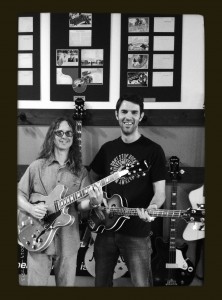Practice Habits and Tips
Some of the most frequent comments we hear are “I can’t get them to practice” or “they’re really into sports, (video games, boy scouts etc) right now”. The vast majority of parents go through this at one time or another during their child’s musical education. This page has been created to give you some insight from our experiences and suggestions on how to help.
Musical education like any journey contains a series of peaks and valleys. Every student encounters times when practice feels like a burden and other times when they are excited and motivated to prepare for their next lesson. The juggling act consists of pushing enough when needed to see progress but not pushing so much that their passion for music and musical exploration is extinguished. At times this means the student needs a break for a few days from practice and at other times it may require a bribe. Whatever the case may be, someday all students will thank their parents for not letting them quit such a worthwhile pursuit.
Our fundamental goal at Don’t Stop Rockin’ is to lay a musical foundation for the future. We believe the best way to achieve this goal is by keeping the student interested and motivated.
It’s not just us saying how important music lessons are, there’s a bunch of really, really smart people saying it to. There’s a multitude of research out there as to the importance. Here’s just a couple:
University studies conducted in Georgia and Texas found significant correlations between the number of years of instrumental music instruction and academic achievement in math, science and language arts. – University of Sarasota Study, Jeffrey Lynn Kluball;East Texas State University Study, Daryl Erick Trent
Engaging in musical activity for most of one’s lifetime significantly helps remember names, and enhances nonverbal memory, the ability to work based on what one sees, and mental agility during old age. -Brenda Hanna-Pladdy and Alicia MacKay, University of Kansas Medical Center, Kansas
.
Common observations / Tips
In a perfect world you wouldn’t need to ask or remind your child to practice their instrument. However, self-initiated practice rarely happens with a young student, this comes from maturity. A younger student (usually 12 and under) requires motivation from an outside source and with time and maturity they will begin to play more and more without any reminders.
We advise keeping practice simple.
– Have a set day(s) / time each week to practice. A motivator is to set practice time immediately before something she really enjoys such as a favorite television show or activity. This way the practice goal will be met otherwise it takes away from her activity.
– Set a realistic goal for each practice session. Often times it is better for the practice session to be only until the given goal is accomplished. Some days this could take 5 minutes and other days 30 minutes.
– Keep it short especially for younger students. 8-10 minutes of practice, 2-4 times a week will keep them progressing steadily.
– Try practicing immediately after the lesson. After returning home, sit down with your child and play through his lesson assignment one time. This should take 10 minutes at most. The immediate repetition of the lesson ensures a high rate of retention. Consider counting this session as a day’s practice, so your child may have a day off another time later in the week.
– Have a “reward” system. This is different for everyone; it doesn’t have to be something physical. It can simply be performing her own gig for a relative or gaining time for a favorite activity.
– Listen to music together. When in the car turn on music and ask questions such as “What instruments do you hear?” or “Is the melody getting higher or lower?” This will help with critical listening and keep him engaged and excited when listening.
– Communicate with your instructor. An instructor will always be able to tell if a student has practiced or not, however they won’t always know the reason for it. Because everyone comes to DSR with different goals and expectations, we don’t force a one-fits-all lesson plan for students. Often times, when the student is coming to their lesson and has obviously practiced, an instructor won’t even realize that you have had a headache getting them to do so. If this becomes a persistent issue for you over weeks and months, please chat privately during one of your lessons with your teacher and they will be able to offer some customized options / solutions for you.
In addition to practice tips, DSR provides our own milestones to help motivate students. From the Rock Dollar program where they can earn currency and trade it in for rewards items to performance opportunities, recording original material and even starting / joining a band! Your instructor is invaluable to you also. Constant communication with your instructor is a great idea. If you run into issues and haven’t been able to resolve them at home speak privately with your instructor at some point during your 30-minute lesson and let them know. Often times a quick chat from an adult other than a parent or schoolteacher can do the trick.
Please remember these things happen to every family, you don’t need to feel guilty about it.
Simply having them in music lessons is a huge head start. The research about this is endless.
It’s not simply about being awesome (or even good) at a specific instrument, being with a professional and experienced instructor each week gives them an outlet and continues to lay the foundation for future musical possibilities.
Summary
Please remember self-motivated discipline is not first nature for most kids. As teachers and parents we need to help prepare the practice environment with the objective of keeping them interested and motivated. Regular practicing is a path towards self-discipline that goes way beyond music — it’s a skill that has hugely positive ramifications for personal fulfillment and lifetime success. Our goal at DSR isn’t for every student that walks into the building to become a professional musician. It is simply to lay a musical foundation so they have an understanding of the most common language in the world, music. Music is a skill that translates across languages and cultures and one that the musician can use and improve upon throughout the entire range of a lifetime. We hope to be able to help give the student something of their own to be proud of and something they would like to share about themselves… a flag to plant. We hope to watch their confidence grow as an individual and then to watch this acquired confidence spill over into the rest of their life. Music is a perfect tool to help someone grow more confidently into his or her future.
There is bond that develops over time between an instructor and student. In fact, we are often asked by parents to help / give advise to students (particularly middle and high school) to their children about navigating through the muddy waters of teen life. We are flattered that these families trust us to help.
DSR Bands
Once a rocker joins one of our bands, their musical goal each week is to come prepared on their instrument so that they can quickly start playing the songs with the rest of the band. For some, this might take an hour or more of at home practice each week. For others, they might already have learned that particular song in the past and not need any practice to come prepared for it. If your rocker is coming unprepared we will certainly let them know before we chat with you about it. Unlike private lessons, multiple people are affected if one person doesn’t come prepared. If it is consistent, we will contact you to try to work out a solution. If you don’t hear from us, all is good!















